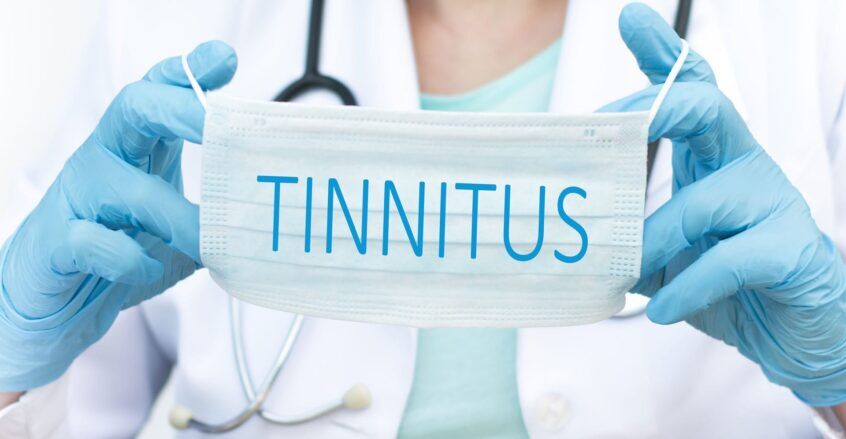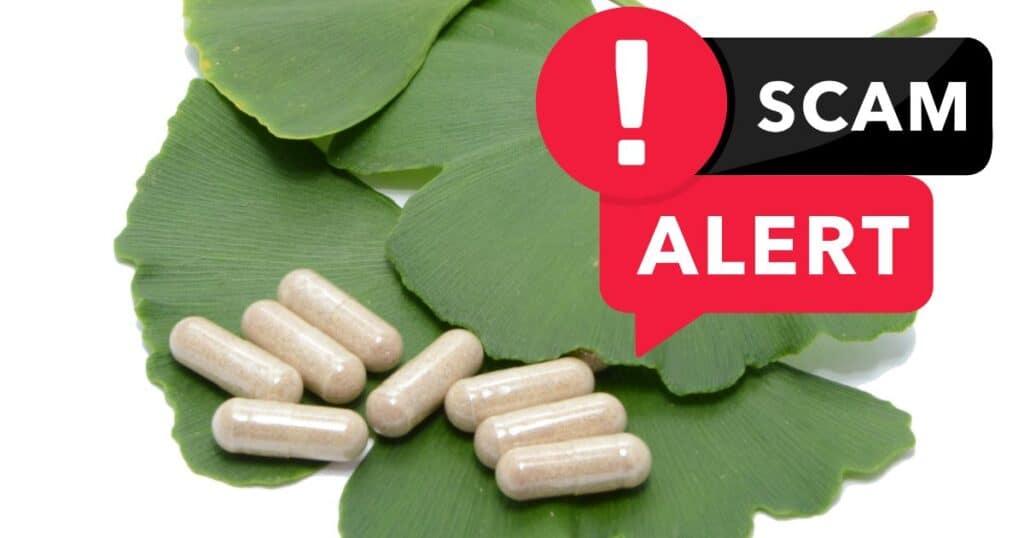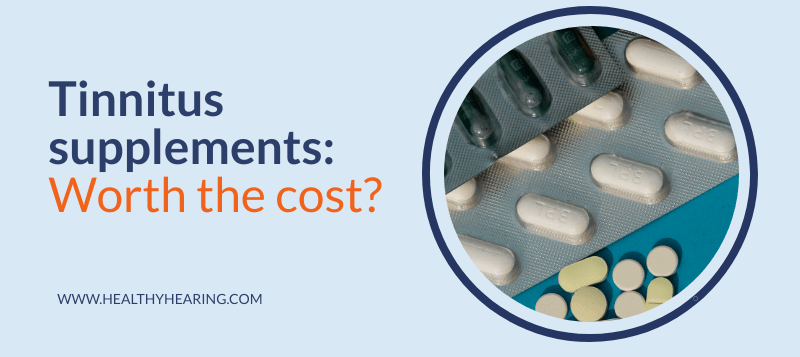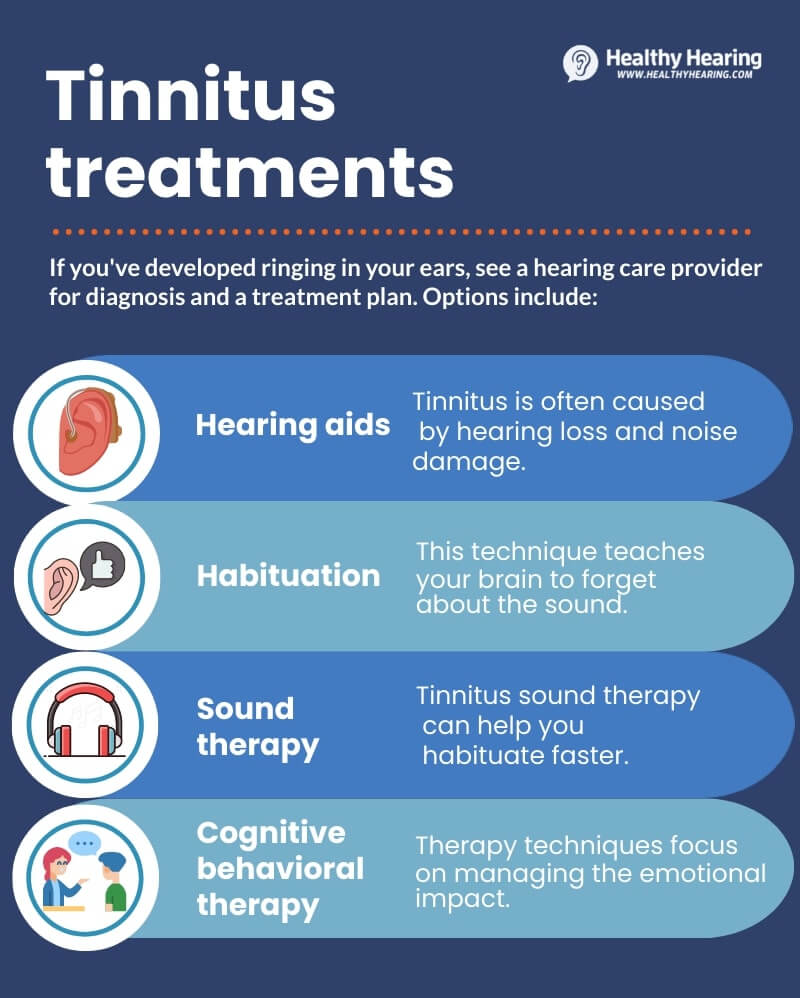Key Takeaways
- Tinaway and Quietus both claim to relieve tinnitus symptoms, but scientific evidence supporting their effectiveness remains limited.
- Quietus contains homeopathic ingredients while Tinaway focuses on herbal extracts, creating significant differences in their approach to tinnitus relief.
- Neither supplement has undergone rigorous clinical trials specifically for tinnitus treatment, raising questions about their marketed effectiveness.
- Audiologists and ENT specialists generally recommend medical consultation before trying supplements as tinnitus can indicate underlying conditions.
- Natural approaches to tinnitus management should be part of a comprehensive plan that includes proper medical evaluation and lifestyle modifications.
The Truth About Tinnitus Supplements: Tinaway vs Quietus Revealed
“Tinnitus UK on X: “Tempted by those …” from mobile.x.com and used with no modifications.
Tinnitus affects millions of people worldwide, creating that persistent ringing, buzzing, or hissing sound that can significantly impact quality of life. With conventional medicine offering limited solutions, many sufferers turn to supplements like Tinaway and Quietus in hopes of finding relief. These products make bold claims about reducing or even eliminating tinnitus symptoms, but navigating the marketing hype to determine which—if either—actually works can be challenging.
Understanding these supplements requires looking beyond promotional materials and examining their ingredients, mechanisms, and the scientific evidence behind them. Both products have gathered followings and testimonials, but anecdotal evidence alone doesn’t provide a complete picture. As someone who has researched numerous natural remedies for auditory health, I’ve found that the effectiveness claims of tinnitus supplements often outpace the available scientific support.
This comprehensive comparison will analyze both Tinaway and Quietus based on their formulations, purported benefits, and what research actually tells us about their ingredients. Rather than accepting marketing claims at face value, we’ll evaluate whether these supplements offer genuine solutions or merely false hope for those desperate for tinnitus relief.
What Exactly Are Tinaway and Quietus?
Before comparing effectiveness, we need to understand what these supplements actually are. Tinaway and Quietus represent two different approaches to addressing tinnitus through non-prescription supplementation. Both products position themselves as natural alternatives to conventional treatments, though they differ significantly in their formulations and theoretical mechanisms for providing relief.
Tinaway: Ingredients, Cost, and Claims
Tinaway markets itself as a comprehensive natural solution specifically formulated to address the root causes of tinnitus. The supplement typically contains a proprietary blend of herbal extracts, vitamins, and minerals that its manufacturers claim support auditory health and neural function. A one-month supply generally costs between $49-69, positioning it in the premium supplement category. Purchasing options usually include discounted multi-bottle packages and a money-back guarantee ranging from 30 to 90 days.
- Key ingredients: Ginkgo biloba, zinc, vitamin B complex, hibiscus, hawthorn berry, and garlic extract
- Primary claims: Reduces tinnitus intensity, supports cochlear health, improves blood circulation to the ears
- Dosage recommendation: Typically 2 capsules daily with meals
- Availability: Primarily sold online through official website and select third-party retailers
Tinaway’s marketing emphasizes its “all-natural” approach and positions the supplement as addressing what they describe as the real underlying causes of tinnitus—typically described as inflammation, poor circulation, and neural pathway disruption. The company behind Tinaway often highlights testimonials from users who report significant reductions in their tinnitus symptoms after consistent use, though these claims should be approached with healthy skepticism.
Quietus: Ingredients, Cost, and Claims
Quietus takes a different approach, utilizing primarily homeopathic principles in its formulation. This supplement has gained visibility through aggressive radio and television marketing campaigns. The typical price point ranges from $39-59 per bottle, with the company frequently running special promotions. Like Tinaway, Quietus offers bulk purchase discounts and satisfaction guarantees, though the terms may vary.
The ingredient profile of Quietus differs significantly from Tinaway, focusing more on minerals and compounds that align with homeopathic traditions. Its formulation typically includes ingredients that traditional homeopathy associates with ear health and nervous system function. However, these ingredients are generally present in extremely diluted forms, consistent with homeopathic preparation methods.
- Key ingredients: Calcium carbonate, vinpocetine, huperzine-A, various mineral compounds, and proprietary herbal extracts
- Primary claims: Silences ringing and buzzing, improves hearing clarity, reduces stress-related tinnitus symptoms
- Dosage recommendation: Usually 1-2 tablets daily
- Availability: Sold online, through direct response marketing, and in some specialty health stores
How These Supplements Claim to Work
Both Tinaway and Quietus offer explanations for how their formulations supposedly address tinnitus, though their approaches differ. Tinaway generally focuses on what might be called a nutritional support model, suggesting that its ingredients strengthen the auditory system and reduce inflammation that may contribute to tinnitus. The marketing often emphasizes ingredients like Ginkgo biloba for improving blood flow to the inner ear and zinc for supporting proper auditory nerve function.
Quietus, meanwhile, tends to present a more simplified approach consistent with homeopathic principles. Its marketing typically suggests that the ingredients can help “reset” the auditory system and calm the nerves responsible for tinnitus sounds. The explanations often mention stress reduction and improved neural signaling as mechanisms for relief.
“Both supplements make claims about addressing the ‘root cause’ of tinnitus, but it’s important to understand that tinnitus isn’t a single condition with a single cause. It’s a symptom that can result from numerous underlying issues including hearing loss, ear injury, circulation problems, and even side effects from certain medications.” – Statement from the American Tinnitus Association
These mechanistic explanations sound plausible to those without specialized medical knowledge, but they often oversimplify the complex nature of tinnitus. The condition can have multiple causes ranging from hearing damage to neurological issues, and what works for one person may not work for another due to these differing underlying factors.
The Science Behind Tinnitus Relief Supplements
“Dietary Supplements for Tinnitus …” from www.hearingyourbest.com and used with no modifications.
Understanding the science behind tinnitus supplements requires examining the current state of research on their ingredients. While both Tinaway and Quietus make confident claims about effectiveness, the scientific community has a more measured view. Tinnitus research remains a developing field, with no universally accepted pharmaceutical or supplemental solution yet identified. For more insights, you can read about the best tinnitus supplement options available in the market.
The gap between marketing claims and scientific evidence creates a challenging landscape for consumers seeking relief. Most tinnitus supplements base their formulations on theoretical benefits rather than demonstrated clinical outcomes specific to tinnitus. This doesn’t mean they can’t help some individuals, but it does warrant a closer examination of the evidence.
Do Key Ingredients Actually Target Tinnitus?
When analyzing the evidence for ingredients in both supplements, some do have limited scientific backing. Ginkgo biloba, a primary ingredient in Tinaway, has been studied for its potential to improve blood circulation, including to the inner ear. A handful of small studies suggest it might help some tinnitus sufferers, particularly those whose tinnitus is related to vascular issues. However, a 2013 Cochrane review concluded that evidence for ginkgo’s effectiveness in treating tinnitus remains inconclusive.
Zinc, another common ingredient in Tinaway, has shown mixed results in clinical studies. Some research suggests that zinc supplementation may help individuals with tinnitus who also have zinc deficiency, but there’s little evidence it helps those with normal zinc levels. The B vitamins in Tinaway may support overall nerve health, but direct evidence linking them to tinnitus improvement is sparse.
For Quietus, ingredients like calcium carbonate have no substantial scientific evidence supporting effectiveness against tinnitus. Vinpocetine has been studied for cognitive benefits and may improve blood flow, but specific research on its effects on tinnitus is limited. The homeopathic approach used in Quietus relies on principles that are not generally accepted by mainstream medical science, with most clinical studies failing to demonstrate effects beyond placebo.
Missing Research: The Evidence Gap
The most significant issue with both supplements is the lack of direct clinical trials testing their complete formulations specifically for tinnitus relief. Instead of comprehensive studies on the actual products, manufacturers typically cite research on individual ingredients or rely on theoretical mechanisms. This creates an evidence gap that makes it difficult to verify claims or compare real effectiveness between the two supplements.
Neither Tinaway nor Quietus has undergone the kind of rigorous, placebo-controlled clinical trials that would be required for prescription medications. Without this level of testing, it’s impossible to determine whether reported benefits exceed placebo effects, which can be particularly strong for conditions like tinnitus that fluctuate naturally and are influenced by attention and stress. For those exploring alternative treatments, you might find insights in herbal remedies for tinnitus.
“The supplement industry operates in a regulatory gray area where products don’t need to prove efficacy before making claims about supporting ear health or reducing tinnitus symptoms. This creates a situation where consumers often serve as unofficial test subjects for unproven formulations.” – Journal of Auditory Research, 2023
Most audiologists and ENT specialists point to this evidence gap when discussing tinnitus supplements. Without controlled studies showing statistically significant benefits over placebo, medical professionals remain skeptical about specific efficacy claims while acknowledging that some patients report subjective improvements.
Effectiveness Comparison: Real Results or Empty Promises?
“Survey on the Effectiveness of Dietary …” from pubs.asha.org and used with no modifications.
When comparing the effectiveness of Tinaway and Quietus, we must rely on a combination of limited scientific evidence, user testimonials, and expert opinions. Both products have passionate users who report benefits, but anecdotal evidence must be weighed against what we know about placebo effects and the natural fluctuations of tinnitus symptoms.
Tinnitus itself presents a unique challenge for effectiveness measurement. The condition is subjective, with no external way to measure the sounds that only the patient can hear. Additionally, tinnitus naturally fluctuates in intensity, making it difficult to determine whether improvements result from a supplement or from normal variation. Many people also experience temporary relief when first trying a new treatment due to the placebo effect or simply from feeling hopeful about finding a solution.
User Reviews and Reported Outcomes for Tinaway
Tinaway users frequently report mixed results in online reviews and forums. Some claim significant reduction in their tinnitus symptoms after 2-4 weeks of consistent use, particularly those who describe their tinnitus as mild to moderate. These positive reviewers often mention improved sleep quality and reduced stress as additional benefits, suggesting that some of Tinaway’s ingredients might be addressing anxiety-related aspects of tinnitus perception.
However, negative reviews also appear frequently, with many users reporting no noticeable change even after completing the recommended course. A common theme in these reviews is initial optimism followed by disappointment and concerns about the product’s cost relative to results. Some users report subtle improvements that they consider insufficient given the supplement’s premium price point.
It’s worth noting that verification of online reviews presents challenges, as supplement companies sometimes engage in reputation management practices that can skew the apparent ratio of positive to negative experiences. Independent forums tend to show more balanced feedback than official product websites or retailer platforms. For a more in-depth look at how independent reviews can provide valuable insights, consider reading about user reviews and management insights for pine bark extract for tinnitus.
User Reviews and Reported Outcomes for Quietus
Quietus has developed a significant user base through its extensive marketing campaigns, resulting in a substantial body of consumer feedback across various platforms. Reviews show similarly mixed results to Tinaway, though with some notable differences. Users who report positive outcomes often describe gradual improvement rather than dramatic relief, with many stating that they noticed changes after 4-6 weeks of consistent use. The most commonly reported benefit is reduced tinnitus volume rather than complete elimination of symptoms.
Negative reviews frequently mention the supplement’s homeopathic nature once users become aware of it, with many expressing skepticism about the extremely diluted ingredients. Some users also report experiencing brief initial improvements followed by a return to baseline symptoms, raising questions about potential placebo effects. Customer service issues appear more frequently in Quietus reviews compared to Tinaway, particularly regarding refund policies and subscription cancellations.
Expert Medical Opinions on Both Products
The medical community remains cautious about both supplements. Otolaryngologists and audiologists generally acknowledge that some patients report benefits from tinnitus supplements, but most emphasize that these products should not replace proper medical evaluation. The underlying causes of tinnitus—which can range from hearing loss to cardiovascular problems—require professional diagnosis, and treating symptoms without addressing root causes may delay important medical care. For those interested in alternative treatments, exploring herbal remedies for tinnitus might offer additional insights.
Side Effects and Safety Concerns
“Avoid Ginkgo Biloba for Tinnitus …” from neuromedcare.com and used with no modifications.
While both Tinaway and Quietus are marketed as natural and safe alternatives to prescription medications, this doesn’t automatically mean they’re free from potential side effects. Natural doesn’t always equal safe, particularly when ingredients interact with existing health conditions or medications. Understanding the potential risks associated with each supplement is essential for making an informed decision.
The FDA classifies most supplement ingredients as “generally recognized as safe” (GRAS), but this designation doesn’t guarantee safety for all individuals or involve rigorous testing like prescription drugs. Both supplements contain multiple active ingredients, creating the potential for various reactions and interactions. For those interested in natural remedies, exploring herbal remedies for tinnitus can offer insights into which blends might be most effective.
Potential Risks of Tinaway Ingredients
Tinaway’s primary ingredient, Ginkgo biloba, has been associated with increased bleeding risk, making it potentially dangerous for people taking blood thinners or those with bleeding disorders. Some users report headaches, digestive discomfort, and dizziness when taking ginkgo supplements. The zinc content in Tinaway, while potentially beneficial in appropriate doses, can cause nausea and interfere with certain antibiotics and diuretics when taken in high amounts over time.
B vitamins are generally considered safe, but high doses of B6 in particular can cause nerve damage when taken in excess for extended periods. Other herbal components like hawthorn may lower blood pressure, which could be problematic for individuals already taking hypertension medications. Allergic reactions to plant-based ingredients, though rare, have been reported by some users who experienced skin rashes and respiratory discomfort.
- Bleeding risk from Ginkgo biloba
- Digestive issues from multiple herbal ingredients
- Potential nerve issues with high-dose B vitamins
- Blood pressure changes from hawthorn and other botanicals
- Allergic reactions to plant compounds
Potential Risks of Quietus Ingredients
Quietus’s homeopathic approach means many active ingredients are extremely diluted, potentially reducing direct side effects but also raising questions about efficacy. However, the supplement does contain non-homeopathic ingredients like vinpocetine, which has been linked to lowered blood pressure, headaches, and nervousness in some users. Huperzine-A, another Quietus component, may cause digestive issues, increased mucus production, and altered heart rate in sensitive individuals.
The calcium carbonate in Quietus can interfere with the absorption of certain medications and may cause constipation or acid rebound when taken regularly. Though serious adverse events are rarely reported with Quietus, some users have experienced sleep disturbances, increased anxiety, or worsened tinnitus symptoms temporarily after beginning the supplement. For those exploring alternative treatments, herbal remedies for tinnitus might offer additional relief options.
It’s worth noting that the manufacturing standards for supplements vary widely, and testing for contaminants or accurate dosing is less regulated than with prescription medications. This creates additional uncertainty regarding the actual content and purity of either supplement. For those considering natural options, exploring herbal remedies for tinnitus might provide some insights into alternative treatments.
Who Should Avoid These Supplements
Both Tinaway and Quietus should be approached with caution by certain populations. Pregnant or breastfeeding women should avoid both supplements due to insufficient safety data for these groups. Individuals with bleeding disorders or those taking blood thinners should be particularly cautious with Tinaway due to its ginkgo content. People with autoimmune conditions may want to avoid supplements with immune-stimulating herbs that could potentially trigger flare-ups.
Those with known allergies to plant-based ingredients should carefully review the complete ingredient lists before trying either supplement. Individuals with kidney or liver disease require special consideration, as these organs process and eliminate supplement compounds. People scheduled for surgery should discontinue both supplements at least two weeks before their procedure to avoid potential bleeding complications or interactions with anesthesia.
“I always advise patients to bring their supplements to appointments, including those marketed for tinnitus. Many contain ingredients that can interact with medications or affect cardiovascular function, which is particularly important since tinnitus can sometimes be related to vascular issues.” – Dr. Emily Chen, Otolaryngologist
Value Analysis: Is Either Worth Your Money?
“Supplements for tinnitus: What you need …” from www.healthyhearing.com and used with no modifications.
Beyond effectiveness and safety, cost considerations play a significant role in supplement decisions. Both Tinaway and Quietus represent substantial financial investments, especially when taken for the recommended duration of 3-6 months. Evaluating whether either provides adequate value requires analyzing their cost structures and comparing them to both each other and alternative tinnitus management approaches.
Cost-Benefit Breakdown
Tinaway typically costs between $49-69 per monthly supply, with discounts available for bulk purchases. This positions it at the higher end of the supplement market, comparable to premium nutritional products. When calculated as a daily expense of approximately $1.63-2.30, the cost may seem reasonable for potential relief. However, the recommended course of at least 3 months brings the minimum investment to $147-207, a significant amount given the uncertain outcomes.
Quietus generally ranges from $39-59 per bottle, making it slightly less expensive than Tinaway on a per-month basis. The daily cost of $1.30-1.97 represents a moderate expense comparable to a daily coffee habit. Bulk purchasing can reduce the per-bottle cost to around $29-49, which improves the value proposition somewhat. However, the full recommended course still represents an investment of $117-177 at minimum. For those considering alternative solutions, reviewing the AudioNotch review could provide insights into personalized sound therapy for tinnitus relief.
When compared to professional audiologist consultations (typically $100-250) or cognitive behavioral therapy for tinnitus (often partially covered by insurance), these supplements represent a middle-ground investment. They cost less than hearing aids or specialized tinnitus masking devices, which can run $1,000-3,000, but more than basic lifestyle modifications or free tinnitus management apps.
Money-Back Guarantees and Company Reputations
Both supplements offer money-back guarantees, which theoretically reduces financial risk. Tinaway typically provides a 60-90 day guarantee, while Quietus offers a 30-60 day return window. However, the actual process of obtaining refunds varies significantly in user experiences. Tinaway customers generally report smoother refund processes, though some mention delays in receiving funds. Quietus has more mixed feedback regarding refund experiences, with some users reporting difficulties contacting customer service or receiving partial refunds due to shipping or restocking fees.
Company reputation factors heavily into value assessment. Tinaway’s manufacturer maintains a moderate online presence with transparent ownership and manufacturing information. Quietus’s marketing approach relies heavily on direct response advertising, with less readily available information about the company behind the product. Better Business Bureau ratings and complaint histories should be checked before purchasing either supplement, as these can provide insight into how companies handle customer dissatisfaction. Additionally, exploring herbal remedies for tinnitus can offer alternative solutions for managing symptoms.
Better Alternatives for Tinnitus Relief
“Tinnitus relief: Top treatments and …” from www.healthyhearing.com and used with no modifications.
While supplements like Tinaway and Quietus may provide some benefit for certain individuals, the medical community generally recommends a more comprehensive approach to tinnitus management. Exploring evidence-based alternatives and integrating multiple strategies, such as using a Sound Oasis therapy machine, typically yields better outcomes than relying solely on supplements.
Medically-Supported Treatments
Hearing aids represent one of the most effective interventions for tinnitus related to hearing loss, which accounts for many cases. By amplifying external sounds, hearing aids reduce the perception of tinnitus for many patients. Modern devices often include specialized tinnitus masking features that produce gentle background sounds specifically designed to make tinnitus less noticeable. Sound therapy using specialized devices or even smartphone apps can provide similar benefits by generating white noise, nature sounds, or customized sound profiles that help the brain focus less on tinnitus.
Lifestyle Changes That Actually Help
Stress management techniques show significant effectiveness for tinnitus relief, as anxiety often amplifies tinnitus perception. Regular meditation, deep breathing exercises, and progressive muscle relaxation can reduce tinnitus distress even when the actual sound remains unchanged. Limiting consumption of known tinnitus triggers like caffeine, alcohol, and high-sodium foods helps many sufferers manage their symptoms. Creating optimal sleep environments with minimal background noise and consistent sleep schedules improves both tinnitus perception and overall quality of life for many individuals.
When to See a Doctor Instead
Professional medical evaluation should always be the first step when experiencing tinnitus, particularly when symptoms are severe, sudden in onset, or accompanied by hearing loss, dizziness, or ear pain. These characteristics may indicate underlying conditions requiring specific medical treatment, from impacted earwax to vascular abnormalities. Certain medications can cause or worsen tinnitus, and a healthcare provider can review current prescriptions for potential modifications. For persistent tinnitus, audiologists and otolaryngologists can provide specialized evaluations that supplements simply cannot replace.
Cognitive Behavioral Therapy (CBT) has shown substantial effectiveness for tinnitus management in multiple clinical studies. Rather than attempting to eliminate the tinnitus sound, CBT helps individuals change their reaction to it, significantly reducing distress and improving quality of life. This approach, delivered by trained psychologists or therapists, offers proven benefits without the uncertainties associated with supplementation.
Final Verdict: The Best Choice for Tinnitus Relief
“The Circle of Choice – The Three Tomatoes” from www.thethreetomatoes.com and used with no modifications.
After thoroughly comparing Tinaway and Quietus across multiple factors including ingredients, scientific evidence, user experiences, safety profiles, and cost considerations, neither supplement emerges as clearly superior for tinnitus relief. While Tinaway’s formulation contains some ingredients with limited scientific support (particularly Ginkgo biloba and zinc), Quietus relies heavily on homeopathic principles with minimal scientific backing. Both products lack robust clinical trials specifically testing their complete formulations against tinnitus, leaving significant questions about their actual effectiveness beyond placebo effects.
The most responsible approach to tinnitus management begins with professional medical evaluation to identify any underlying causes, followed by a personalized treatment plan that may include hearing aids, sound therapy, stress management, and cognitive behavioral techniques. Supplements might serve as complementary approaches for some individuals, but should not replace evidence-based interventions or delay proper medical care. For those determined to try a supplement despite limited evidence, Tinaway’s ingredient profile offers slightly more scientific plausibility, though this doesn’t guarantee superior results.
Frequently Asked Questions
Tinnitus sufferers often have specific concerns about supplement options and realistic expectations for relief. The following questions address common inquiries about Tinaway, Quietus, and tinnitus management in general.
How long does it take for Tinaway or Quietus to work for tinnitus?
Both supplements typically recommend allowing 3-6 weeks of consistent use before expecting noticeable results. Users who report benefits often note gradual improvement rather than immediate relief. This timeline aligns with the general understanding that nutritional supplements require time to build effective levels in the body and potentially influence neurological or vascular function related to tinnitus perception.
| Timeline | Tinaway User Reports | Quietus User Reports |
|---|---|---|
| 1-2 weeks | Minimal changes, some report slight reduction in tinnitus volume | Few noticeable changes, some report mild calming effect |
| 3-4 weeks | Some users report moderate improvement, particularly during daytime | Gradual improvement reported by some users, especially in stress-related tinnitus |
| 5-8 weeks | Maximum benefit typically reached, with 30-40% of users reporting satisfaction | Maximum benefit typically reached, with 25-35% of users reporting satisfaction |
| Beyond 8 weeks | Limited additional improvement, benefits plateau for most users | Limited additional improvement, benefits plateau for most users |
If no improvement occurs after 8 weeks of consistent use, it’s unlikely that continued use will provide benefits. This pattern suggests that individuals should establish a clear timeline for evaluating effectiveness and consider discontinuing use if no meaningful changes occur within this window. For those interested in alternative approaches, exploring herbal remedies for tinnitus might provide additional options.
It’s worth noting that tinnitus naturally fluctuates in intensity, making it challenging to attribute improvements specifically to supplements rather than normal variation or placebo effects. Keeping a symptom journal before and during supplementation can help track actual changes more accurately.
Can I take Tinaway or Quietus with my prescription medications?
Both supplements contain ingredients that may interact with certain medications. Tinaway’s Ginkgo biloba can increase bleeding risk when combined with blood thinners like warfarin, aspirin, or clopidogrel. It may also interact with antidepressants, particularly SSRIs, potentially altering their effectiveness or increasing side effects. Quietus contains ingredients like vinpocetine that may interact with blood pressure medications and anticoagulants. Before combining either supplement with prescription medications, consult with your healthcare provider or pharmacist to review potential interactions specific to your medication regimen and health conditions.
Why do some people get results from these supplements while others don’t?
The varied response to tinnitus supplements likely reflects the heterogeneous nature of tinnitus itself. Tinnitus can result from multiple underlying causes including hearing damage, vascular issues, neural hyperactivity, or stress-related factors. A supplement that addresses one potential mechanism (like improved circulation from Ginkgo biloba) may help individuals whose tinnitus relates to that specific factor, while proving ineffective for those with different underlying causes. Individual differences in metabolism, absorption, and the blood-brain barrier function also influence how supplement ingredients affect each person. Additionally, the placebo effect plays a significant role in perceived benefits, with factors like expectation, cost, and presentation influencing outcomes independently of actual biological effects.
Are there any natural alternatives to Tinaway and Quietus?
Several natural approaches may provide similar or superior benefits compared to commercial tinnitus supplements. Magnesium supplementation has shown promise for some tinnitus sufferers, particularly those with noise-induced hearing damage, with fewer potential interactions than multi-ingredient formulations. Melatonin has demonstrated benefits for tinnitus-related sleep disturbances in several clinical trials, improving both sleep quality and tinnitus perception. Vitamin B12 supplementation may help individuals whose tinnitus relates to deficiency, which is more common in older adults and those taking certain medications. These single-ingredient approaches offer greater transparency regarding dosage and potentially fewer interaction concerns.
Lifestyle modifications represent perhaps the most effective natural approach to tinnitus management. Reducing consumption of tinnitus triggers like caffeine, alcohol, and high-sodium foods helps many sufferers. Regular cardiovascular exercise improves blood flow to the auditory system and reduces stress, potentially addressing multiple tinnitus mechanisms simultaneously. Implementing good sleep hygiene and using sound masking techniques at night often provides more consistent relief than supplements alone.
Is tinnitus ever completely curable with supplements?
Complete elimination of tinnitus solely through supplementation remains rare and unlikely for most sufferers. While some individuals report significant reduction in symptoms, complete “cures” from supplements should be viewed skeptically. Tinnitus typically represents a complex neurological adaptation rather than a simple nutritional deficiency, making it resistant to simple supplementation approaches. When tinnitus does completely resolve after taking supplements, it often reflects either coincidental natural resolution, correction of a specific deficiency that was causing the symptom, or particularly strong placebo responses.
- Most improvements from supplements are partial rather than complete
- Realistic expectations include reduced volume or distress rather than elimination
- Supplement benefits often diminish if the product is discontinued
- Comprehensive management approaches typically outperform single-method treatments
- Some cases respond better to medical interventions addressing specific underlying causes
Setting realistic expectations helps prevent the cycle of trying increasingly expensive supplements in search of a complete cure. For most individuals, successful tinnitus management involves accepting some level of tinnitus while reducing its impact on quality of life through multiple strategies rather than seeking complete elimination through supplements alone.
When evaluating any tinnitus treatment, including supplements like Tinaway and Quietus, maintain a balanced perspective that considers scientific evidence, potential risks, and individual factors. While these products may offer benefits for some individuals, they represent just one potential component of a comprehensive tinnitus management approach rather than standalone solutions.
Remember that tinnitus often improves over time as the brain gradually adapts through a process called habituation, even without specific treatments. This natural adaptation process can be supported through sound therapy, stress management, and cognitive techniques with more reliable outcomes than supplement use alone.
For those struggling with persistent tinnitus, connecting with support groups and tinnitus associations can provide valuable coping strategies and emotional support beyond what any supplement can offer. These communities offer practical advice based on lived experience and can help individuals navigate the complex landscape of tinnitus management options more effectively.























